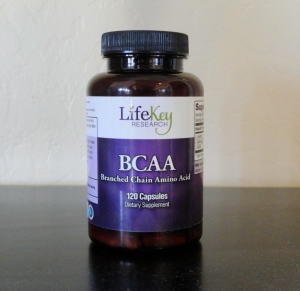What are Branched Chain Amino Acids?
Branched Chain Amino Acids
If you are building more muscle and want less fat you should check out the combination of BCAA’s and CLA supplements. Today we will discuss the branched chain amino acids and their benefits.
The Three BCAAs
The BCAAs are leucine, isoleucine, and valine. The name “branched-chain amino acids” is derived from the structure of these compounds. Each one has a forked outcropping that looks a bit like a branch, hence the name branched chain amino acids..The three BCAAs are incredibly essential and actually fall into the category of essential amino acids. Essential amino acids are amino acids that the body cannot synthesize on its own and therefore must get adequate amounts through dietary sources. In fact, even though there are about 20 amino acids that the muscles use for growth, the BCAAs comprise roughly a third of the aminos within muscle tissue. So if muscle growth is your goal BCAAs are a must.
Metabolism
It may not seem like the metabolic process of different amino acids matters as long as the end point is muscle tissue. The truth is that the manner in which amino acids are metabolized plays a large role in their functions within the body. The metabolism of BCAAs is different that the metabolic processes of other amino acids. What truly makes the BCAAs special is how they are metabolized. While most amino acids are metabolized in the liver BCAAs are metabolized primarily by muscle. Despite their structural similarities the three branched chain amino acids have different metabolic routes. The breakdown of leucine is accomplished solely through fat pathways. Valine is broken down solely through carbohydrate pathways, and isoleucine through both. The different metabolic pathways of these three amino acids lead to varying requirements for each.
BCAAs, unlike most other amino acids, are metabolized in within muscle tissue, allowing them to be oxidized (used as energy) by muscle cells to produce cellular energy in the form of ATP. ATP is the primary source of energy that fuels muscle contraction and allows you to lift weights.
The fact that leucine, isoleucine, and valine are metabolized within muscle tissue allows them to be a quick energy source when the body needs it. There is a significant increase in BCAA metabolism during prolonged exercise simply because the body requires more energy during periods of stress such as training. This makes BCAAs incredibly effective when taken around workout time.
The unique metabolic processes, requirements, and versatility of BCAAs allow them to impact nearly every aspect of training.
BCAAs And Fat Loss. Yes helps you get rid of fat too!
The effects of BCAA intake on fat loss is something that has only been explored in more recent years. Newer research is showing that BCAAs can have a positive effect on fat loss. This doesn’t mean you can eat pizza at every meal with a side of BCAAs and the fat will just melt away though. BCAAs seem to maximize fat loss when one is already on a fat loss diet. On any fat loss diet, carbohydrates will need to be lowered to some degree. It seems that BCAAs ability to spare glycogen and increase insulin sensitivity may play a role in speeding up the results of a fat loss plan.
BCAAs should also be used as a supplement during any fat loss plan because of the muscle preserving effects. On any calorie restricted plan muscle tissue loss is a serious concern that must be addressed. All of the positive effects that BCAAs have on muscle growth will also serve to protect muscle during periods of calorie restriction. It is always important to remember that anything which builds muscle will also preserve muscle. For more information and to read the complete research visit Muscle and Strength.
We have added BCAA to our supplement line. Click here to purchase



